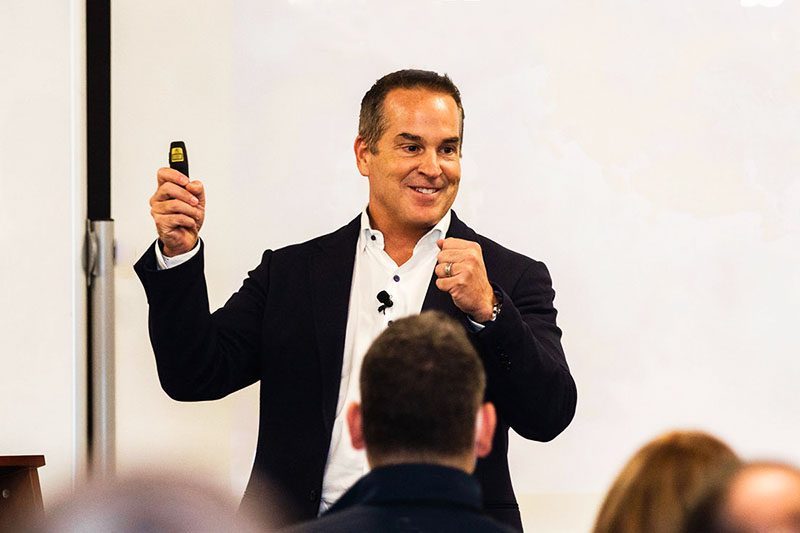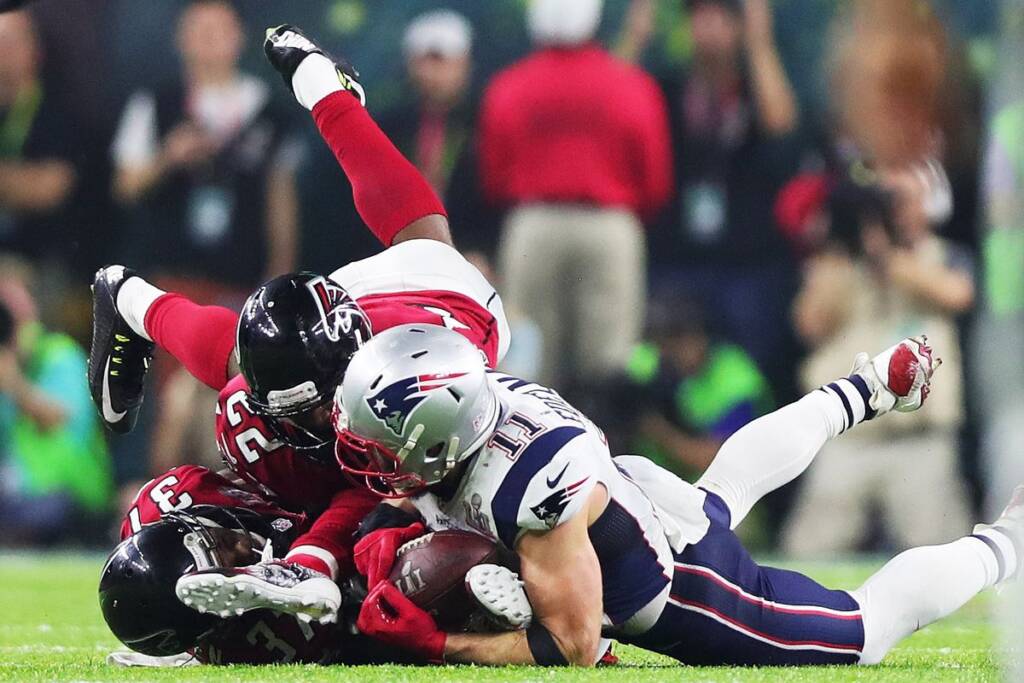About 10 years ago I became a coach of youth football, first starting with flag and then moving up to tackle. I know a few people may question my authorship right away by letting my son play a collision sport, but I am ok with that, because coaching the sport taught my players and I so much about mental strength. I coached for the Police Athletic League in New Hampshire, and the only expectations of our team was to win a game or two each season, and that was it. As an intellectually curious guy, I really wanted to know why we just weren’t that good. I was given lots of reasons; our teams have 16 to 18 players and the best teams have 30 to 36 players, our kids come from all different socioeconomic backgrounds and don’t mesh well, and our kids just get beat up and aren’t tough. The reasons were echoed from everyone I spoke with, even from competing teams. So, as I embarked on an 8-year coaching “career” and sports experiment, here is what I found out.
16 vs 30 – We Just Don’t Have Enough Players
- Right away, I felt this was a legit reason, after all I am an engineer at heart and understand the bell curve dynamics. If 20% of the kids are really good athletes and players, we would have 3 and they would have 6. Totally agree, and as it turns out this is true. Numbers win. Our team’s solution to this – recruit more players and specifically let’s get to 22 to 24. Why 22 to 24 you may ask? Because the bell curve has both sides – really good players and players that need some extra coaching ;-). Each of my years coaching we started training camp at 24 and ended the season between 22 and 24, and it worked. But the key to recruiting was a mental shift – we are going to go undefeated this season and turn PAL football around, this is the best time to join because you can be a part of launching a winning tradition. A combination of mindset and marketing.
Different Socioeconomic Backgrounds Don’t Mesh Well
- Yes, our teams came from very diverse socioeconomic backgrounds, but what 3rd grader knows what the heck that means? This reason was total crap. That issue MIGHT have been a parent issue, but notice I put MIGHT in capital letters. Kids mesh with kids and some kids don’t mesh with other kids, it has nothing to do with economics. It’s been that way since cave-people threw rocks at each other as a sport. The solution was equally simple – it’s the coach’s job to instill a team, family culture and fun environment that creates unity amongst the players, parents and families. So off the field, we played kickball, rode in caravans and all the parents and supporters wore the same t-shirts, kind of like a uniform – but informally a sign of unity not differences.
Our Kids Just Get Beat Up & Aren’t Tough
- Yes, once again, this was true. But the organization had a losing mentality, and the team was defeated before players were registered. Before my first practice, I remember hearing parents and supporters talk about “hoping for a 2-win season, how great would that be.” With this mental make-up from the organization to the parents to the coaches, of course the players were getting beat-up but it didn’t have anything to do with being tough. It was a mindset that GOT INSTILLED. The solution for this was to put aside time in every practice to develop mental strength and leadership. Even for young elementary boys and girls! We called this time – mental SHIFT – and challenged each young player to use their mind to play the game, not just their bodies. We leveraged white boards, commitment cards and former local players talking about when they were young.
One of my favorite football players is the definition of mental toughness and strength – Julian Edelman for the New England Patriots. He stands 5’10” tall and about 190 pounds, which is the size most kids could relate to. (Verses 6’6” and 300 pounds). The picture I used for this article is of Edelman displaying his mental strength in Super Bowl LI vs the Atlanta Falcons in a game the Patriots were losing 3 – 28 and came back to win it – another shining example of mental strength. I held Julian up to my players as someone they could be. One of my favorite YOUTUBE videos is Edelman reading his own NFL scouting report –“player without a position, a reach in the 7th round, a gimmick, no future in the NFL”. Watch Here: https://youtu.be/ssEmQ1Ww3v0
And at the end of the video Edelman turns to the camera as he runs up the steps of Harvard Stadium and says, “In life you have two choices, you can prove them right, or you can prove them wrong.” Man, I get pumped just writing about it. But coming out of high school, Julian didn’t have any big-time college offers and he had to go to junior college. After Juco, he went to Kent State as a quarterback. And somehow, Bill Belichick selected Julian in the 7th round of the NFL draft……as a wide receiver. But Edelman had never caught a pass before, he was the guy throwing them after all! Fast forward 11 years and Edelman has caught 599 passes for over 6,500 yards, 36 touchdowns and was named a Super Bowl MVP.
So, one of the main points I am really trying to drive home in this article is this – YOU define YOU. No one else does. Others can talk about you, they can focus on your limitations, they can write about what you aren’t, they can snicker at what you think you can do. But only you can do it. Only you can show up early, stay late, learn new things, set goals, build a plan, commit each day and do it.
Back to my youth football team and the expectations of winning one to two games a season for 8 seasons – the team finished 73 wins and 9 losses for a 90% win percentage. The boys didn’t win because they were physically stronger, they didn’t win because of coaching, they won year in and year out because they believed they were going to win every time they took the field……well except when we played one particular team which was “in our heads”. Just like Julian Edelman proved to all the draft-niks he could play in thee NFL, the young footballers proved winning is all about mental strength and they became a force to be reckoned with.
Remember, you define your limitations. You define who you are today. You define who you will become tomorrow. And your mental strength is what pushes you past your natural abilities, your natural strength, your natural position in life to something much bigger.
How much bigger? I don’t know, what do YOU want to be?
Be Fearless in your pursuit of YOU.














